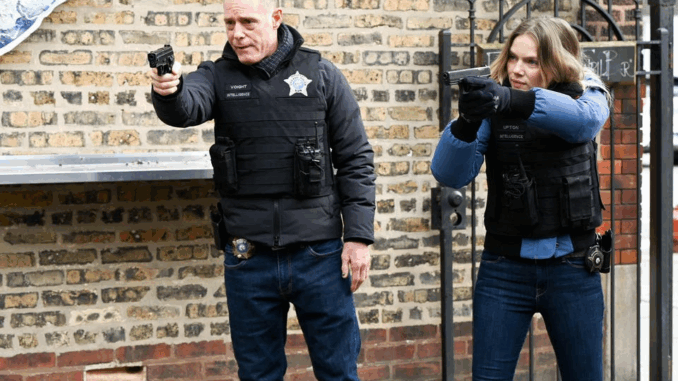
In the gritty streets of Chicago, where crime never sleeps, one man stands as both a beacon of justice and a symbol of controversy: Sergeant Hank Voight. As Season 12 of Chicago P.D. unfolds, it becomes increasingly evident that Voight remains steadfast in his methods, refusing to adapt to the evolving landscape of law enforcement. This unwavering stance has sparked discussions among fans and critics alike, questioning whether his rigidity is a testament to his dedication or a hindrance to progress.
Hank Voight: The Embodiment of Old-School Policing
A Legacy Built on Tough Choices
Hank Voight’s journey is one marked by personal tragedy and professional challenges. Losing his father, a fellow officer, at a young age instilled in him a relentless drive to uphold the law, no matter the cost. This personal history has shaped his approach to policing, often blurring the lines between right and wrong in pursuit of justice.
The Intelligence Unit’s Guiding Hand
As the head of the Intelligence Unit, Voight has led his team through countless high-stakes investigations. His leadership style, characterized by decisiveness and a no-nonsense attitude, has earned him both respect and criticism. While his methods may be unorthodox, they often yield results, reinforcing his belief in their efficacy.
Season 12: A Mirror Reflecting Voight’s Intransigence
The Catalyst Events
Season 12 presents Voight with scenarios that challenge his traditional methods. From dealing with new leadership dynamics to confronting personal demons, the season serves as a crucible testing his adaptability.
Resistance to Change
Despite facing situations that would prompt introspection in others, Voight remains resolute. His interactions with colleagues and superiors highlight a man deeply entrenched in his ways, often dismissing alternative approaches in favor of tried-and-true tactics.
The Dichotomy of Voight’s Methods
Effectiveness vs. Ethics
Voight’s methods, while effective, often skirt the boundaries of legality and morality. This dichotomy raises questions about the cost of results and whether the ends truly justify the means.
Impact on Team Dynamics
His unwavering stance can create tension within the team, especially with members who advocate for more progressive policing methods. This internal conflict adds layers to the narrative, showcasing the challenges of balancing tradition with innovation.
Audience Reception: A Polarizing Figure
The Loyalists
Many fans admire Voight’s dedication and results-driven approach. They view him as a necessary force in a city plagued by crime, someone willing to do what others won’t to ensure safety.
The Critics
Conversely, some viewers express concern over his methods, fearing they perpetuate a cycle of violence and mistrust. They argue that his refusal to adapt undermines efforts to modernize policing and build community relations.
The Broader Implications
Reflecting Real-World Policing Debates
Voight’s character serves as a microcosm of real-world discussions surrounding law enforcement practices. His resistance to change mirrors challenges faced by police departments globally as they grapple with reform and public perception.
The Future of Chicago P.D.
As the series progresses, the question remains: Will Voight’s methods continue to be effective, or will they become a liability? The show’s direction hinges on this pivotal character’s evolution—or lack thereof.
Conclusion: The Unchanging Constant
Hank Voight stands as a testament to unwavering conviction in the face of change. His character challenges viewers to consider the complexities of justice, leadership, and morality. Whether one views him as a hero or a relic of a bygone era, his impact on Chicago P.D. is undeniable.
FAQs
Q1: Has Voight shown any signs of changing in Season 12?
While faced with situations that could prompt change, Voight largely maintains his traditional approach throughout Season 12.
Q2: How do other characters respond to Voight’s methods?
Reactions vary; some team members respect his experience, while others challenge his tactics, leading to internal conflicts.
Q3: Does Voight face consequences for his actions?
At times, Voight encounters repercussions, but his position and results often shield him from lasting consequences.
Q4: Are there any new characters influencing Voight’s decisions?
Season 12 introduces new dynamics, but none significantly alter Voight’s core approach to policing.
Q5: What themes does Voight’s character explore?
Voight’s character delves into themes of justice, morality, leadership, and the challenges of systemic change within law enforcement.
